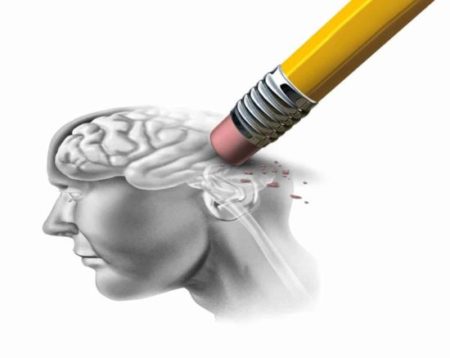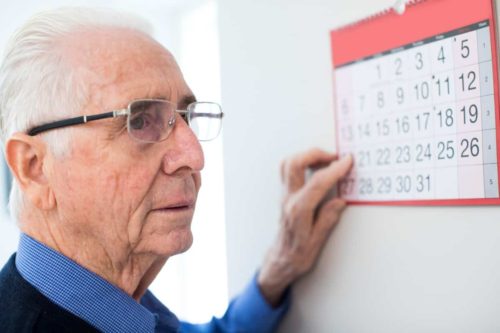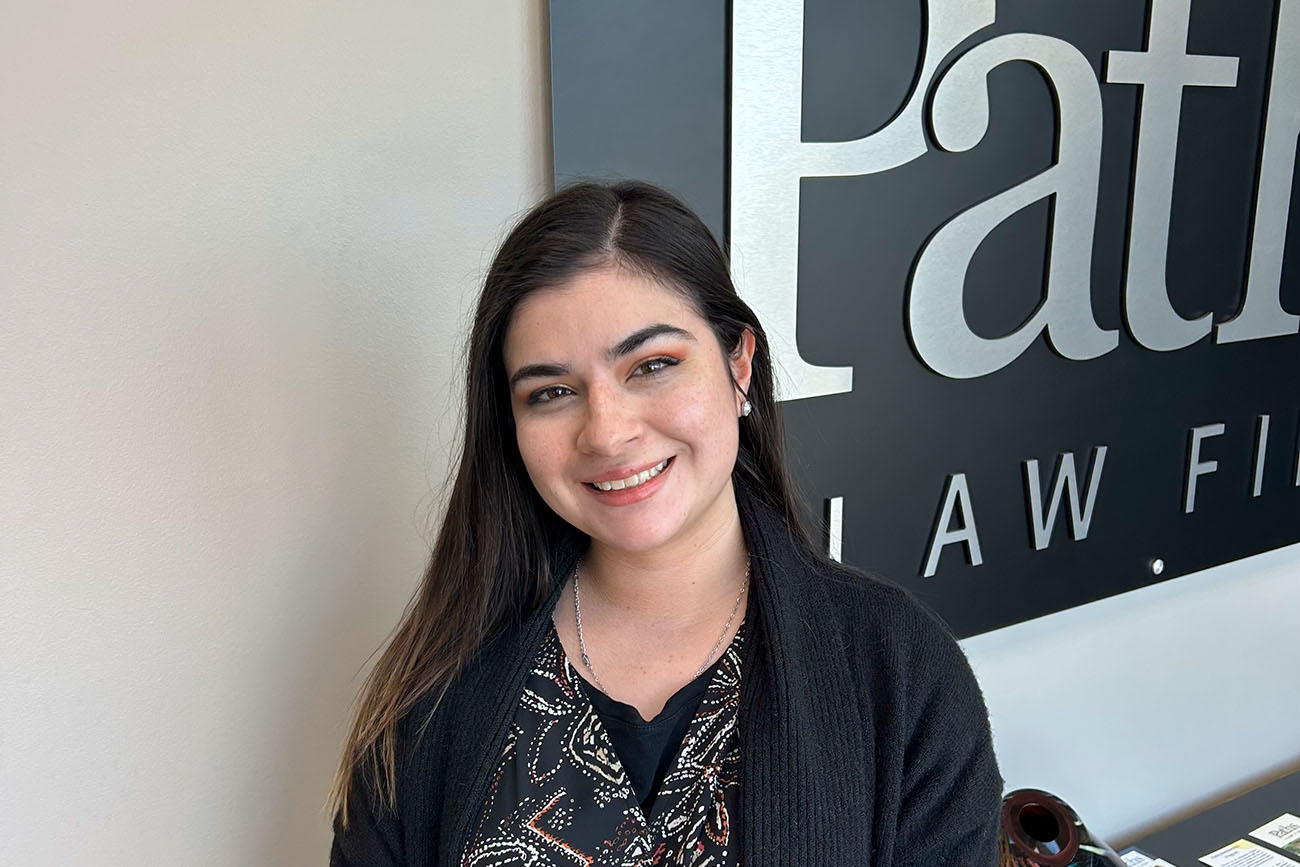As we age, our memory often changes. Our ability to recall information or remember life events may be increasingly difficult at times. The difference in age-related memory changes and the beginning signs of dementia may be difficult for a lay-person to distinguish. Alzheimer’s is a medical condition worsening over time. The progression of the disease is generally a slow decline in memory, thinking, and reasoning skills. In this article, we will discuss the signs of Alzheimer’s, memory care facilities, and when Alzheimer’s care or memory care may be recommended by experts.
*This blog is for educational purposes only and should not be considered legal advice. The use of the Paths Law Firm website does not constitute a client-lawyer relationship.
In the United States, more than 5 million people, of all ages, are living with Alzheimer’s. This number is projected to almost triple by 2050. For more Facts and Figures about Alzheimer’s visit the Alzheimer’s Association website.
What Is Memory Care?
Memory care is specialized care for individuals having Alzheimer’s or another form of dementia, memory or cognitive decline. Facilities or communities with Alzheimer’s or memory care units provide safe, secure, and structured environments where staff can more closely monitor residents. They also provide activities, programs, and events designed to help strengthen or slow the decline of a resident’s cognitive abilities.
Care Provided at a Memory Care Facility
Memory care facilities are designed specifically for individuals who suffer from progressive conditions such as Alzheimer’s or dementia. Even though the family of the senior may provide compassionate and loving care at home, Alzheimer’s and dementia require specialized care from highly trained and experienced caregivers. A memory care facility will provide the necessary care for your senior to enjoy his/her life as well as personal care assistance to help your loved one stay on track. The staff of a memory care facility is specially trained to provide the necessary care needed for seniors suffering from memory loss. We should also remember the toll care takes on the family members when not taking advantage of memory care facilities.

Here are a few features an Alzheimer’s care or memory care facility may provide.
A Welcoming Atmosphere – Many care facilities will have private rooms, bathrooms, and plenty of natural light to help the residents feel more comfortable and at home. Easy-to-navigate floor plans will let a senior enjoy his/her stay at the facility. They may participate in enjoyable everyday activities helping to improve their cognitive functions.
Secure Settings – Memory care facilities provide secure settings to keep the residents safe 24 hours a day. Many of these facilities include enclosed courtyards so seniors can explore the outdoors safely.
Person-Centered Care – All residents are not the same. They have unique needs which should be addressed. The facility will provide quality care catering to each resident ensuring their nutritional needs, medication needs, and hygiene needs are met. As well as any other unique care required or recommended.
Enriching Activities – Seniors will have a full social calendar in a memory care facility. Planned activities keep seniors engaged to use their skills. A senior can enjoy his/her day by engaging in brain games, art classes, dancing, and music programs.

The Difference Between Alzheimer’s And Dementia
Alzheimer’s and dementia are similar in nature, but not the same disease. The terms may confuse many people because they are used interchangeably. Dementia is the umbrella term used to describe a group of symptoms revolving around the loss of memory. Alzheimer’s is considered a specific form of dementia responsible for more than 70% of dementia cases. Alzheimer’s cannot be reversed since it’s a degenerative disease. But dementia can be treated in some cases to accommodate or slow the cognitive decline. It is important to know the difference between these two terms to distinguish between seniors with Alzheimer’s or another form of dementia.
- Dementia is not a specific disease, but a term used to describe a range of symptoms. These symptoms impact an individual’s ability to independently perform everyday tasks. Some of the common symptoms of dementia are a decline in memory, changes in thinking, changes in reasoning, and poor judgment. Also, symptoms may include a decrease in focus, attention, and communication. There are many types and causes of dementia to include the following:

What is Alzheimer’s Disease?
Alzheimer’s disease is the most well-known form of dementia. It is a progressive disease often starting with mild loss of memory. This degenerative disease impacts the portion of the brain controlling language, memory, and thought. A common sign of Alzheimer’s is trouble remembering new information. When the condition advances, symptoms become worse and may include disorientation, behavior changes, and confusion. Eventually, the patient may find it difficult to walk, speak, and swallow.
Signs That Alzheimer’s Care Is Needed
Alzheimer’s and other forms of dementia are progressive conditions. And, even though your parents or grandparents may be independent in the early stages of the condition, they may require full-time Alzheimer’s care as the condition worsens. Because additional care is needed for people with this debilitating disease, if there isn’t a full-time caregiver to attend your loved one, assisted living in a memory care facility may be needed.
Here are some of the most common signs your loved one needs to be moved to a memory care facility:

Changes in Behavior
Seniors with Alzheimer’s may start acting in strange ways. For example, an independent person may suddenly become fearful of driving, begin to withdraw from society, and decline social invitations. A person who dressed well may suddenly neglect daily hygiene practices. They may forget how to perform daily tasks such as bathing and combing the hair.
Forgetting to bathe, wash, pay bills, or miss appointments are clear symptoms of a decline or onset of Alzheimer’s. Unwashed and wrinkled clothing, unkempt hair, body odor, and other personal hygiene issues are all signs home care or memory care will be helpful.
Confusion That Impairs Physical Safety
Alzheimer’s usually causes confusion and disorientation. Such symptoms can lead to numerous physical safety issues like injuries due to accidents. A person with Alzheimer’s may forget a red light means they need to stop. This will likely lead to auto accidents. Some individuals may wander from home and forget their address or how to get back home. They may also end up someplace they do not recognize. If your parent or grandparent is continuously putting his or her safety at risk, it is time to at least consider a memory care facility.
A Decline in Health
Physical changes are the first symptoms to recognize in a person suffering from Alzheimer’s or dementia. If your parent or grandparent suddenly becomes thin and frail, he or she might be forgetting to shop for groceries or take medications as directed. But many other conditions could make your parents or grandparents thin and frail. Hence, you should be cautious when distinguishing between a person suffering from dementia or any other condition. If your senior doesn’t take his or her prescription medications as they were doing in the past, they may be suffering from memory loss or dementia. Sometimes, the senior may forget whether he or she has taken the medication and take more than the required dosage.

The Death of a Caregiver
Many people suffering from Alzheimer’s or dementia are cared for by a spouse or family member. When the caregiver or family member suffers from health issues or dies, it often means the senior suffering from the disease needs a higher level of attention such as a memory care facility.
Incontinence
Even though a family member or caregiver can handle most of the needs of a senior suffering from Alzheimer’s, incontinence can become a big issue. When incontinence sets in, the caregiver may become overwhelmed and feel it’s more than they can handle. This can affect both professional and non-professional caregivers who take care of the needs of a parent or grandparent in a home setting.
Wanders Off and Gets Lost
If your parent or grandparent gets up in the middle of the night and becomes confused, he or she may wander. Wandering is extremely dangerous for a person who suffers from Alzheimer’s disease. They may wander and not realize where they are or how to get back home. It can leave them exposed to harsh elements in the winter and summer seasons and put them in dangerous situations. This is a clear sign memory care may be needed.
Finances Are Being Neglected
If your parent or grandparent has been living alone, it is important to take note of his/her mail. Do you see unpaid bills or late notices? Do you see collection and creditor notices? Neglecting finances is one of the most common signs additional care is needed. Be sure to communicate with your loved one about their finances as they may become at risk or vulnerable to financial scams.

Your Loved One Is Lonely and Isolated
Feelings of isolation and loneliness can increase the risk of depression in people who are suffering from Alzheimer’s. Getting out with a parent or grandparent suffering from Alzheimer’s can be quite difficult. A memory care facility has active and engaging activities for your loved one that can help relieve depression and anxiety, as well as to mitigate anxiety and agitation often accompanying Alzheimer’s.
Living Conditions Become Subpar
If you notice your loved one is no longer caring for his or her home, food is spoiling in the refrigerator, too many household messes or dishes are left out, it may be time to move them to a memory care facility. Memory care facilities have linen services and housekeeping to help your loved one stay clean and organized.
Elder Law and Alzheimer’s Care
Alzheimer’s is an emotionally traumatizing disease for both the patient and family members. Besides the considerations for medical care, quality-of-life holds the biggest concern for most individuals. Fortunately, planning with an experienced elder law attorney provides many advantages for people with Alzheimer’s disease and their families. An experienced elder law attorney will provide you with a variety of strategies to cover the cost of Alzheimer’s care and obtaining Medicaid benefits for covered services.
This can be critical as the cost of medical and health care expenses for this type of disease are exceedingly high. On average the cost of memory care in the state of Missouri is $4760 per month. Because this type of disease can go on for many years the cost can greatly impact any savings or retirement accounts originally set aside for your golden years.
If you or a loved one is suffering from a form of dementia or Alzheimer’s and need assistance, call Russell A. Fracassa (Rusty) at 816-524-7999. Paths Law Firm has been helping seniors and their families for over 25 years with elder law and eldercare issues. We will help plan and apply for the most benefits available to you to assist with your care. Contact us today to schedule your consultation.



































